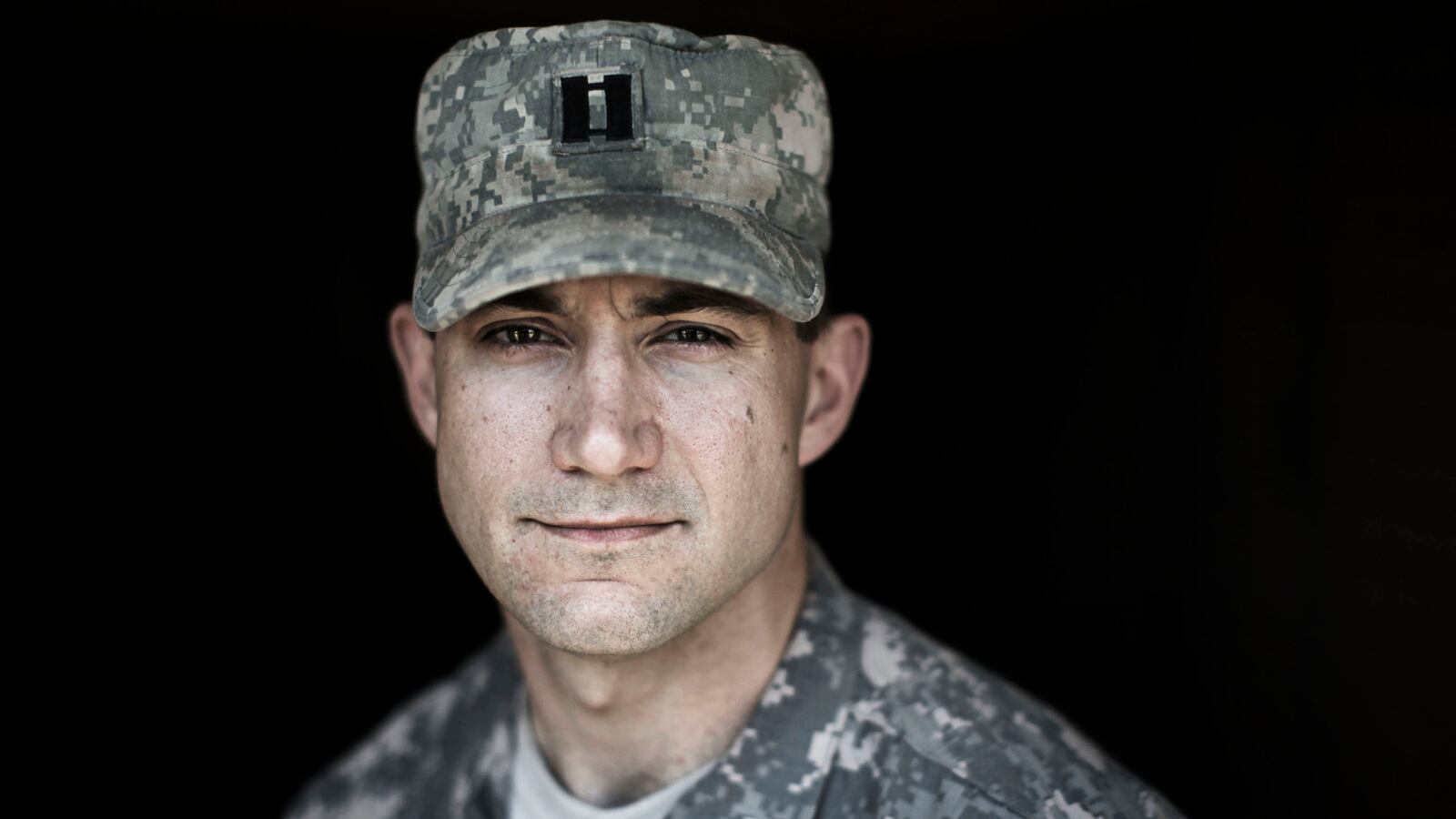If war is the true oldest profession, then perhaps the soldier’s letter is the origin of the form. The particular constructs and constraints of a military campaign—necessary separation from loved ones, daily news and hardships, hours of tedium that must be filled, not to mention the prospect of death—combine to create perfect letter-writing conditions, and average soldiers have been communicating existential insights large and small since the moment they became literate.
Collections of such letters can be revealing. Pulitzer Prize-winner James McPherson’s slim volume What They Fought For is filled with nuance, as Union and Confederate soldiers provide eloquent arguments about the need to preserve the republic, the dangerous precedent of succession, and the horror of having one’s land invaded. War Letters, a collection of American military correspondence from the Civil War through the conflict in Bosnia, was compiled by Andrew Carroll and became a New York Times-bestseller when it was published just prior to 9/11. Carroll’s soldiers and war-caught civilians display a remarkable consistency, writing about love and faith and minutia in equal measure.
Consider Adrian Bonenberger’s new Afghan Post, then, to be an individualized successor to such compilations. Billed as the first epistolary memoir of the modern Afghan War, Bonenberger synthesizes his old journal entries and letters and emails and into a newly written narrative of correspondence between him and several key friends and family members. In the book’s introduction he nearly apologizes for the style, saying it “isn’t quite as relevant today as it used to be.” How? We live in an age of written communication, constant texts and tweets and Facebook posts and old-fashioned emails and endless clickbait articles on one’s smart phone. These outlets have spread to our nation’s combat outposts, but in a war zone the physical letter remains a prized object; it was written by the hand of your lover, it smells like them, you can tuck it into a fold of your body armor and take it on patrol. Letters are as relevant as ever.
Bonenberger’s story picks up just after 9/11, writing to his WWII veteran grandfather, a seemingly reluctant warrior and peace activist. Bonenberger is finishing an English degree at Yale and feeling disconnected from a war that he already believes is over. In the letters that follow we see his extraordinary transformation: war protestor to disoriented Army trainee to eager warrior hoping his first deployment to Afghanistan will be “where the action is.” In the final frame, conversion complete, we are left with a soul lost and hard, grumbling that the American people don’t get it and contemplating the mechanics of suicide.
The first step on such a journey, Yale to Army recruiting station, is on the surface the most improbable. Bonenberger marched in front of the UN in early 2003 in opposition to the coming war with Iraq, but after graduation he lacked professional direction, drank, and traveled, had no worries or fears of the future but no plan either, managing to observe “surely we’re meant for more than this.”
He wants to feel connected to the struggle of his generation, and Bonenberger’s decision to enlist in the Army and attend officer selection school is not rash or offhanded. When “protest is no longer a meaningful way to effect social change,” he argues, then what to do? He doesn’t want “to cede the moral high ground to those who participate, while opting out ourselves.” He wants to be a person who risked rather than retreated, and finally concludes that “the only choices are service or silent acquiescence.” He joins up in an effort to inject some ethics into his country’s war-making process from the inside.
Bonenberger is skeptical in boot camp, cynical in officer knife-and-fork school, struggles physically and mentally in the Ranger crucible, and driven to courageously excel in combat when he finally exits the exhaustive training cycle and is sent to his first airborne brigade. By the end of the grueling process he feels destined for it. What a difference fifteen months makes.
This is Bonenberger’s great gift, authentically inhabiting each of these former selves. That he joined the Army at the less-impressionable age of 27 must have something to do with this. He encountered each training challenge and deployment to Afghanistan as an already fully-formed person. He experienced the war and it affected him but not exclusively; enlist as a teenager and the Army can be as formative as fourth grade. Still, his metamorphosis is notable and begs examination. Does cruel reality shake him out of his Yale cocoon? Or is the military’s enveloping indoctrination really so effective that even the protestor can be made impatient to hunt “bad guys?”
The answer is probably both. At least a few Adrian Bonenbergers exist, and all of his conflicting personalities occupy the same space at the same time. Each letter reveals how he is one man to his parents, another to an Army buddy, another to a fading girlfriend. He is equally at odds in own mind: the Afghans are both backward and “no different than me,” he wants to lead men into battle but feels guilty about it, he is disillusioned and frustrated and his “life is full of the perfect purpose.”
That this story is told in letters is central, and the format never fades into the background. The inherent immediacy of combat is drained when viewed from such distance; there is no play-by-play, and we never see Bonenberger pull the trigger of his rifle. Instead, military operations are anticipated then summarized, the danger glossed-over.

But this filter also provides him the space to reflect and continue questioning. “Have you begun asking yourself why cell phones and cities and iced coffee makes men want to seek death on alien planets?” he writes to a fellow soldier a month into his first tour. When he finally gets a decent meal (a hamburger with both lettuce and Dijon mustard, imagine), we don’t taste it with him, but in a later letter he understands “part of living well is knowing when you have it good.” And when he goes stir crazy from snow and solitude in the mountains he has the time to write about it, expressing little patience for being what Robert Kaplan would call an “imperial grunt,” serving at the far outer edge of the empire, where the mission is only to exist and screen and bleed at the fingertips so the main organs are protected.
Adhering closely to his chosen form does create some awkward moments and unfortunate contrivances, when the artifice either gets in the way or is taken too far. Occasionally Bonenberger is stuck explaining to the receiver of the letter something which is clearly meant for us instead. So Grandpa must learn about the relative merits of the M-16 versus the M-1 rifle, and an Army buddy hears an explanation of basic gear and protocols.
But Bonenberger rarely cheats, and instead the reader often endures the other extreme, prose burdened with gratitude for regular care packages, logistical discussions about reunions, every variety of “yours truly” and “sincerely” (no consistent “Your Affectionate Uncle Screwtape” here), and other minor banalities of interpersonal relationships. Any time he gets close to describing “the horror movie” he switches to thank you’s for baked goods. During his time as a company commander, the highlight of his career, we hear little about battles or triumph or tragedy but rather stories about Mefloquine dreams and reading The New Yorker, the things one puts in letters that would never find room in a memoir otherwise.
But there is still a truth of war revealed here. When the soldier’s daily life swings between boredom and terror, to paraphrase the famous line, familiar trivialities can bring comfort. George Washington’s letters in 1776 were full of mundane instructions to the renovators and landscapers of Mount Vernon. J.D. Salinger may have carried a draft to Catcher in the Rye in his front pocket when he landed on D-Day, but the rest of us chatted about the weather and our sister’s softball game because it meant we weren’t focusing on the bodies and the mayhem and the outgoing artillery barrage and the car bomb that nearly ran us off the road.
It is no wonder that the end of the book is dominated by personal journal entries; Bonenberger is just beginning the struggle of discovering what the war did to him, and that is an exercise in one’s own head. The book feels unfinished, this next chapter uncertain, and why not? We don’t know how everything is going to turn out for the rest of us Iraq and Afghanistan veterans either.





